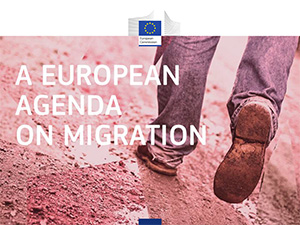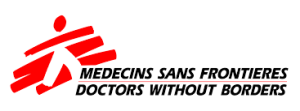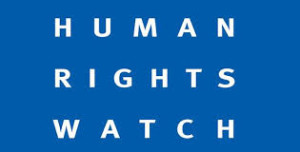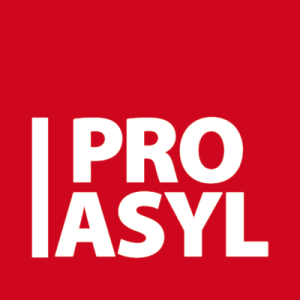Frontex plays a key role in screening of new arrivals on Europe’s southern borders, with its interpreters often deciding nationality. Aisha Maniar shows the inappropriateness of this role, given Frontex’ quasi-military role in policing the borders.
External borders
It will take much more than vigilante Bulgarian ‘migrant hunters’ to protect the borders of Fortress Europe from clandestine migrants and refugee flows: a huge budget, military-grade equipment, intelligence, personnel from across the continent, and one or several dedicated agencies might help. For this purpose, the European Agency for the Management of Operational Cooperation at the External Borders of the Member States of the European Union (or Frontex, from the French Frontières extérieures for “external borders”) was set up in 2004 through a European Union regulation. An amending regulation adopted in 2007 extended its powers, granting further surveillance powers and militarising European border control. With greater power comes greater budgets, numbers of personnel and ‘guest officers’.
 According to its website, Frontex’ main task is ‘to augment and to add value to, border control activities of the Member States’, through assisting EU countries in ‘raising and harmonising border management standards with the aim of combating cross-border crime while making legitimate passage across the external border of the EU faster and easier’. Its consistent focus on deterring irregular migration, protecting man-made borders against ‘the risk of illegal border crossings’ comes at the expense of human lives.
According to its website, Frontex’ main task is ‘to augment and to add value to, border control activities of the Member States’, through assisting EU countries in ‘raising and harmonising border management standards with the aim of combating cross-border crime while making legitimate passage across the external border of the EU faster and easier’. Its consistent focus on deterring irregular migration, protecting man-made borders against ‘the risk of illegal border crossings’ comes at the expense of human lives.
Current crisis
The largest number of refugees worldwide since World War II was reported in 2014. In that same year, Italy ended its Mare Nostrum search and rescue operation for stranded migrants traversing the Mediterranean from south to north, when the EU refused to fund its continuation, instead promoting surveillance and deterrence through Frontex’s Operation Triton. With over one million people attempting to reach the European Union in 2015, and Greece overtaking Italy as the state with the most entrants by sea, the result was an unprecedented number of deaths in the Mediterranean Sea.
Apart from prevention and deterrence, the other main EU response has been to set up accelerated screening processes to enable speedy removal of those deemed not in need of protection.  The European Agenda on Migration created a ‘hotspot’ approach to ‘work on the ground with frontline Member States to swiftly identify, register and fingerprint incoming migrants’. Eleven hotspots were due to be set up in Italy and Greece by the end of 2015, although they have been hampered by a lack of resources and a lack of clearly defined details. The first, and perhaps most well-known, hotspot in Greece opened at Moria on the island of Lesbos in October 2015.
The European Agenda on Migration created a ‘hotspot’ approach to ‘work on the ground with frontline Member States to swiftly identify, register and fingerprint incoming migrants’. Eleven hotspots were due to be set up in Italy and Greece by the end of 2015, although they have been hampered by a lack of resources and a lack of clearly defined details. The first, and perhaps most well-known, hotspot in Greece opened at Moria on the island of Lesbos in October 2015.
At the same time, from November onwards, the EU and Turkey negotiated a deal whereby in return for €3 billion and various trade and diplomatic concessions, Turkey would curb the flow of irregular migrants into Europe via its borders. As of 20 March, this would also include Turkey accepting ‘the rapid return of all migrants not in need of international protection crossing from Turkey into Greece and to take back all irregular migrants intercepted in Turkish waters’.  Serious concerns about the legality of the plan and its lack of safeguards have been raised, leading the NGO Médecins Sans Frontières (MSF) and the UNHCR to cease their vital operations at the Moria hotspot.
Serious concerns about the legality of the plan and its lack of safeguards have been raised, leading the NGO Médecins Sans Frontières (MSF) and the UNHCR to cease their vital operations at the Moria hotspot.
In January, The Economist described Moria, ‘sealed off by a tall metal fence and guarded by police’, as having three sections: one ‘for all Arabic-speaking migrants (mostly Syrians)’, one for Afghan and other Farsi-speakers, and a third for applicants under the EU relocation. The screening process through three rooms takes around half an hour and ‘In the first room, three screeners and three interpreters seated at plastic tables quiz the migrants to find out where they are from’.
Screening
Frontex officials are not only patrolling the borders, but are playing a key role in the nationality-determination screenings or interviews carried out to determine the country of origin of migrants. Screenings are carried out in detention centres, police stations, refugee camps in Greece, Italy and Bulgaria, and ‘hotspots’. The personal data collected is not kept confidential. It can include ‘the date of the interview, the presumed nationality and reasons for the presumption, the surname, first name, age, height, eye colour, the name of the spouse, the number of children, the address in the country of origin, etc.’ and must be collected in the mother tongue of the migrant and English.
Frontex provides teams of interviewers and interpreters for screenings. There is consensus among NGOs that it plays more than just an advisory or support role in this process, with national authorities often simply rubber-stamping decisions made by Frontex staff.
In the hotspots, there seems to be a presumption that migrants are lying about their origin. One French Frontex guest officer on Lesbos stated that at least 30 percent of migrants claim to be Syrians who ‘usually admit their real nationality after some questioning’. Similar comments were made in an interview with the Daily Mail in April 2016 by a Polish Frontex interviewer who works with an interpreter at Moria, claiming that one out of every five migrants makes a false nationality claim: ‘Their accent may be wrong, and if you keep asking questions eventually there will be holes in their information and they will admit they are not from where they are claiming to be.’
Interpreters
‘Our interpreters know many dialects, many languages, and they help the Greek officers identify the people’, boasted the French officer. With respect to interpreters, this is hugely optimistic, given the small number of interpreters available and the large number of languages and people dealt with. Serious questions have been raised about Frontex’s use of interpreters, such as their qualifications and skills to carry out such screenings, and whether they play a more substantial role than that of language and cultural facilitator, to facilitate the removal of migrants. The questions asked – ‘for example, about money, vehicle plates, famous people in Syria they should be able to recognize’ – demonstrate a failure to appreciate the complex realities of war and refugees today. It is facile to assume that Arabic is the mother tongue and universally spoken language in a region as diverse as the Middle East. Even when migrants speak the right language, the interpreter sometimes makes the wrong assessment. In particular, in the case of persons who had lived as refugees for a long period of time in a third country, such as Afghans in refugee camps in Iran or Iraqis in Syria, wrong assessments have been made due to accent or lack of country knowledge. The situation is more tricky for Palestinians, many of whom are born and brought up in other countries, such as Syria or Iraq, and are thus displaced once more by the wars there, and are either deemed stateless and sent back, or assigned Syrian or Iraqi nationality, and thus cannot benefit from the status accorded to Palestinian nationals. These incorrect assessments are made by Arabic interpreters.
There appears to be no clear mechanism for migrants to challenge incorrect assessments of their nationality. The nationality assigned is crucial to whether they can remain and how long they will be detained. Incorrect nationality determinations can lead to human rights violations, including the risk that genuine refugees might not be identified and would be subjected to refoulement. But interviews by NGOs with migrants in detention centres in Greece reveal basic mistakes made by interpreters that show a lack of professionalism and ignorance of political and linguistic issues related to the speakers of the languages they claim to interpret.
Concerns longstanding
This is not the first time Frontex’s role in screening migrants has been questioned. Interpreters were used in 2009 as part of the Attica pilot project in Greece to help interview and identify migrants and return them to their country of origin. Frontex’s 2009 report praised the deployment of interpreters, particularly as it ‘led to the discovery of a significant number of persons passing themselves off as nationals of countries at civil war or countries facing ethnic violence’.  But according to Migreurop, ‘it failed to indicate either the status of the interpreters or the scope of their role’ (ie, if they were involved in decision-making or removal orders). A Greek official was quoted in the report alleging that Frontex officers ‘took decisions alone – on the basis of the interviews they had conducted – about the identification and transfer with a view to repatriation’ of migrants. As a result, local NGOs raised concerns that the principle of non-refoulement may have been breached in the return of some migrants and the UNHCR in Greece expressed concern about the confusion of roles.
But according to Migreurop, ‘it failed to indicate either the status of the interpreters or the scope of their role’ (ie, if they were involved in decision-making or removal orders). A Greek official was quoted in the report alleging that Frontex officers ‘took decisions alone – on the basis of the interviews they had conducted – about the identification and transfer with a view to repatriation’ of migrants. As a result, local NGOs raised concerns that the principle of non-refoulement may have been breached in the return of some migrants and the UNHCR in Greece expressed concern about the confusion of roles.
In the same year, Frontex used interpreters in the sea operation Poseidon,[1] and according to its annual report, ‘vastly improv[ed] the identification process’: fewer than ten per cent of 3,000 interviewed migrants ‘claimed their original nationality’. UNHCR, however, was ‘concerned by the role … given to interpreters in some joint operations, notably in assessing nationalities of apprehended persons’. It reminded Frontex that ‘assessment of nationality, like the assessment of protection needs, can only be carried out by qualified and trained personnel which, in the case of asylum-seekers, must be working in the context of asylum processes with the requisite procedural safeguards’. It concluded that ‘the tasks of interpreters involved in joint operations should be strictly limited’, recommended public access to reports of operations and a code of conduct to govern interpreters’ activities.
 Two years later, in 2011, Human Rights Watch produced a highly critical report on Frontex’s operation at the Greek-Turkish border, including its role in nationality screening, determining detainees’ country of origin in order to facilitate their deportation. ‘Although these screenings were not intended to identify international protection needs, in reality they were usually the most substantive interviews detainees had before being deported,’ the report said. The report demonstrated why some people may not reveal their true nationality or age, even when they are entitled to protection. It also accused the Greek authorities of effectively rubber-stamping Frontex officials’ decisions on nationality. And in a 2013 report, German NGO Pro Asyl described the process at the Evros detention centre: ‘According to Frontex, its specialised interview officers are accompanied by interpreters, who always work in cooperation with Greek officers. In practice Frontex suggests the nationality of the detainees and the Greek authorities take this suggestion for granted since they don’t have their own interpreters.’
Two years later, in 2011, Human Rights Watch produced a highly critical report on Frontex’s operation at the Greek-Turkish border, including its role in nationality screening, determining detainees’ country of origin in order to facilitate their deportation. ‘Although these screenings were not intended to identify international protection needs, in reality they were usually the most substantive interviews detainees had before being deported,’ the report said. The report demonstrated why some people may not reveal their true nationality or age, even when they are entitled to protection. It also accused the Greek authorities of effectively rubber-stamping Frontex officials’ decisions on nationality. And in a 2013 report, German NGO Pro Asyl described the process at the Evros detention centre: ‘According to Frontex, its specialised interview officers are accompanied by interpreters, who always work in cooperation with Greek officers. In practice Frontex suggests the nationality of the detainees and the Greek authorities take this suggestion for granted since they don’t have their own interpreters.’
Incorrect assignment of nationality
 In its 2013 report, Pro Asyl found cases where ‘Afghans were registered as Algerians, Turks or Iranians, Algerian and Moroccans as Syrians, Sudanese as Nigerian, Iraqis as Syrians, francophone Africans as Nigerian, Palestinians as Syrians’. Interviews were usually around 10-15 minutes, too short to make an effective assessment, and assessment materials such as maps, flags and coins were often unsuitable. Pro Asyl added, ‘Sometimes interpreters are present, on other occasions they are not. Sometimes interpreters speak the dialect or the language of the apprehended foreigner, sometimes they do not’, echoing Human Rights Watch’s observations at Greek detention centres in 2011. Also in 2013, the UN Special Rapporteur on the Human Rights of Migrants criticised Frontex for interviewing migrants in Italy without supervision and accused it and the European Union of screening migrants in Greece ‘to establish their nationality to facilitate their expulsion’ and not to ‘identify protection needs’.
In its 2013 report, Pro Asyl found cases where ‘Afghans were registered as Algerians, Turks or Iranians, Algerian and Moroccans as Syrians, Sudanese as Nigerian, Iraqis as Syrians, francophone Africans as Nigerian, Palestinians as Syrians’. Interviews were usually around 10-15 minutes, too short to make an effective assessment, and assessment materials such as maps, flags and coins were often unsuitable. Pro Asyl added, ‘Sometimes interpreters are present, on other occasions they are not. Sometimes interpreters speak the dialect or the language of the apprehended foreigner, sometimes they do not’, echoing Human Rights Watch’s observations at Greek detention centres in 2011. Also in 2013, the UN Special Rapporteur on the Human Rights of Migrants criticised Frontex for interviewing migrants in Italy without supervision and accused it and the European Union of screening migrants in Greece ‘to establish their nationality to facilitate their expulsion’ and not to ‘identify protection needs’.
Border philosophy
The situation now is the same as that described by Pro Asyl in 2013: ‘There is no clear framework, which can guarantee the proper screening and registration procedure, carried out by the authorities. Neither the presence of Frontex can be of any guarantee. In most of the cases, wrong registration occurred due to lack of proper interpretation, arbitrary assessment, lack of representation and lack of qualified and train personnel on cultural, linguistic differences.’
Frontex’s own 2016 risk analysis admits that it is not always possible to carry out thorough checks due to time constraints. Under the European Union deal with Turkey, which has already seen hundreds of people sent back to Turkey from Greece, 400 interpreters, among other personnel from Member States, were sought. As of 4 May, only 84 were identified and 67 deployed. Nationality-determination screenings involving interpreters are part of the process of making the decision, rubberstamped by the Greek and Turkish authorities, to return people.
From Frontex’s perspective, with its emphasis on border and not human security, the system may work perfectly well. In particular, the Greece-Turkey border, a ‘centre of gravity’ of its operations, is a testing ground for the greater militarisation and securitisation of Europe’s borders. Member States do not say whether the interpreters they supply Frontex with are qualified professionals or simply foreign language speakers. More fundamentally, as UNHCR said in 2009, making such assessments does not fall within the duties or skills of an interpreter in the first place. Accent and country knowledge are not determinants of nationality by any measure. Interpreters play a crucial role in facilitating the immigration and information process but they are not border guards or immigration officers.
Blurred lines of responsibility
The problems with Frontex are exacerbated by its opacity and the blurred responsibilities vis-à-vis member states. The question of whether responsibility for border operations lies with Frontex or the Member State is unclear, in theory and practice. Frontex maintains that states have the main responsibility for decisions made and operational actions, in spite of its extensive role in planning and implementation. In practice the lines are often blurred and some officials admit that it is Frontex that makes decisions to expel people.  In addition, although annual reports, risk analyses and various other documents are available on its website, reports of its operations and actions are not provided even to the European Parliament. There is no independent monitoring, which can expose people fleeing persecution and seeking refuge to further violations of their human rights.
In addition, although annual reports, risk analyses and various other documents are available on its website, reports of its operations and actions are not provided even to the European Parliament. There is no independent monitoring, which can expose people fleeing persecution and seeking refuge to further violations of their human rights.
NGOs’ concerns about Frontex’ role led to the adoption of a ‘Fundamental Rights Strategy’ in 2011, and a Consultative Forum on Fundamental Rights was set up in 2012, and renewed in 2015. The 15-member forum, which includes nine civil society organisations, serves as an independent advisory body and produces a joint annual report. The forum makes recommendations, but questions have been raised as to how effective its role is in practice. While members have been able to voice criticisms, the Forum’s scope is limited, the information to which it has access is restricted and there are indications that it is marginalised.
Goodbye Frontex – hello Border Guard
Taking Frontex’s word for its statistics and successes is unwise in the absence of independent verification. Its budget was increased by 54 percent to €176 million for 2016 due to the increasing numbers of irregular migrants trying to enter Europe, yet in October 2015, it was forced to admit it had double-counted an unspecified large number of entrants for the first nine months of that year only after this was noted by an academic at the University of Birmingham. Such misreporting might serve to enhance Frontex’s importance, but also increases public fears.
Frontex has not saved lives or stopped people smugglers. On 18 December 2015, a new regulation was passed to create a new European Border and Coast Guard Agency. It will not replace Frontex but absorb and reform it, extending current powers even further. The lack of accountability and transparency look set to remain, and the role of interpreters in operations is unlikely to change or be redefined. The new agency is anticipated to start operations in August 2016. Rather than consider the root causes of the so-called crisis, many of which are military, the European Union’s response is further unaccountable militarisation. In response to the new agency, Migreurop, which called the agency ‘Frontex 2.0’, stated in a press release, ‘There is an urgent need to put an end to the Agency’s [Frontex] activities rather than reinforce them, to welcome refugees and radically reconsider European migration policy.’
Related links
IRR News story: ‘Language testing of asylum claimants: a flawed approach‘
IRR News story: ‘”Hotspots” for asylum applications: some things we urgently need to know‘


The misuse of interpreters in conducting nationality determinations is widely-known among language professionals. It is explicitly noted in the 2004 “Guidelines for the Use of Language Analysis in relation to Questions of National Origin in Refugee Cases” (www.essex.ac.uk/larg/resources/guidelines.aspx). UK asylum tribunals have rejected the practice in the case AA (Language diagnosis: use of interpreters) Somalia [2008] UKAIT 00029, noting that “An interpreter’s function is to comprehend and communicate, not to assess or analyse.” For more on this topic please contact the Language and Asylum Research Group (www.essex.ac.uk/larg/).